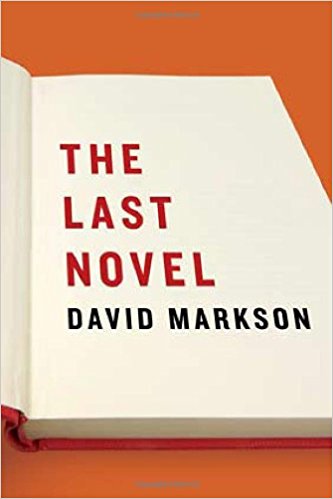The David Markson Estate
David Markson (1927-2010) was a writer of crime novels, westerns, and some of the most widely acclaimed experimental fiction in the postmodern canon.
WITTGENSTEIN'S MISTRESS (1988)
Wittgenstein's Mistress is a novel unlike anything David Markson—or anyone else—has ever written before. It is the story of a woman who is convinced—and, astonishingly, will ultimately convince the reader as well—that she is the only person left on earth.
Presumably she is mad. And yet so appealing is her character, and so witty and seductive her narrative voice, that we will follow her hypnotically as she unloads the intellectual baggage of a lifetime in a series of irreverent meditations on everything and everybody from Brahms to sex to Heidegger to Helen of Troy. And as she contemplates aspects of the troubled past which have brought her to her present state—obviously a metaphor for ultimate loneliness—so too will her drama become one of the few certifiably original fictions of our time.
“A work of genius... an erudite, breathtakingly cerebral novel whose prose is crystal and whose voice rivets and whose conclusion defies you not to cry.” —David Foster Wallace
"I can’t think of the last time I held my breath when I read a book, waiting for the author to make one slip. Markson is as precise and dazzling as Joyce. His wit and awesome power of observation make this fictional world utterly convincing. I couldn’t put this book down. I can’t forget it. While Markson himself would deplore the use of a cliche, all I can say is that this book is original, beautiful, and an absolute masterpiece. Anyone who reads it can’t think about the world the same way."—Ann Beattie
"Provocative, learned, wacko, brilliant, and extravangantly comic...a formidable work of art by a writer who kicks tradition out the window, then kicks the window out the window, letting a splendid new light into the room."—William Kennedy
"In this unsettling, shimmering novel, the reader is immediately drawn into the world of a woman who has gone mad because she is the last surviving creature on earth. Sitting at a typewriter in a beach house day after uncharted dayshe keeps no calendar or clocksshe pours out her thoughts on music, art and ancient Greek legends, and remembrances of her travels across the globe in abandoned cars, looking for other living beings. But after a while, some discrepancies creep into her rambling, compelling monologue: an accident that she first says took place in New York now occurs in Leningrad; memories become distorted by imaginings. Were they ever really memories in the first place? By the end of this seamless stream of consciousness, there is no distinction between fantasy and reality, past and present. Markson (The Ballad of Dingus Magee) keeps the reader off balance and finally unsure of even the foundation of his character's madnessperhaps she is alone only because she believes she is."—Publishers Weekly
Rights: Dalkey Archive Press, World English; Gonzo, Russia; Edizioni Clichy, Italy
VANISHING POINT (2004)
In Vanishing Point, an elderly writer (identified only as "Author") sets out to transform shoeboxes crammed with notecards into a novel—and in so doing will dazzle us with an astonishing parade of revelations about the trials and calamities and absurdities and often even tragedies of the creative life - all the while trying his best (he says) to keep himself out of the tale. Naturally he will fail to do the latter, frequently managing to stand aside and yet remaining undeniably central throughout—until he is swept inevitably into the narrative's startling and shattering climax. A novel of death and laughter both—and of extraordinary intellectual richness.
“Hypnotic... a profoundly rewarding read.”—Kurt Vonnegut
“With his seventh novel, Markson, an avant-garde favorite for works like Wittgenstein's Mistress, which David Foster Wallace called "pretty much the high point of experimental fiction in this country," proves once again that his trademark fragmental style yields boundless meditations on the mythologized lives of great artists and thinkers, as well as the somewhat hapless project of constructing and controlling a novel… Striking, devilishly playful ("If on a winter's night with no other source of warmth Author were to burn a Julian Schnabel, qualms? Qualmless") and with a deeply philosophical core, this novel proves once more that Markson deserves his accolades and then some.”—Publishers Weekly
Following his last novel, the wryly titled This Is Not a Novel (2001), Markson offers another thought-provoking work that extends and challenges the traditional novel form by stringing together snippets of information ranging from quotes by artists and writers to trivia about historical figures to commentary on current news events… Vanishing Point feels a little like a literary Trivial Pursuit, or the associative stream of consciousness produced by a surrealist party game, and it's just as entertaining. Markson deserves great credit for his literary experimentation, which will appeal to open-minded readers who welcome a fresh and witty approach to narration.”— Janet St. John, Booklist
“A strangely delightful experience.”—Jennifer Howard, The Washington Post
Rights: Counterpoint; UL
THE LAST NOVEL (2007)
In Markson’s final work, The Last Novel, an elderly author (referred to only as “Novelist”) announces that since this will be his final effort, he has “carte blanche to do anything he damned well pleases.” Pressed by solitude and age, Novelist's preoccupations inevitably turn to the stories of other artists — their genius, their lack of recognition, and their deaths. Keeping his personal history out of the story as much as possible, Novelist creates an incantatory stream of fascinating triumphs and failures from the lives of famous and not-so-famous painters, writers, musicians, sports figures, and scientists. As Novelist moves through his last years, a minimalist self- portrait emerges, becoming an intricate masterpiece from David Markson's astonishing imagination. Through these startling, sometimes comic, but often tragic anecdotes we unexpectedly discern the entire shape of a man's life.
"The latest engaging, indefinable work from Markson proves to be something between a writer's commonplace book and La Rochefoucauld's satirically aphoristic Maxims. A set of absorbing factoids and musings—from and about a variety of literary and historical notables—comprise his narrator's last novel. With a delight in experimentation, Markson manages to insinuate a sober narrative voice between and among the words of the greats… Old age, defeat and death emerge as leitmotifs, underscored by statements of the places and dates of various authors' deaths, and, slowly, of the narrator's own poverty and loneliness. Markson's dark fragments are, paradoxically, a joy to sift and ponder."—Publishers Weekly
Rights: Counterpoint
Translation: UL
THIS IS NOT A NOVEL (2001)
This Is Not a Novel is a highly inventive work which drifts "genre-less," somewhere in between fiction, nonfiction, and psychological memoir. In the opening pages of the "novel," a narrator, called only "Writer," announces that he is tired of inventing characters, contemplating plot, setting, theme, and conflict. Yet the writer is determined to seduce the reader into turning pages-and to "get somewhere," nonetheless. What follows are pages crammed with short lines of astonishingly fascinating literary and artistic anecdotes, quotations, and cultural curiosities. This Is Not a Novel is leavened with Markson's deliciously ironic wit and laughter, so that when the writer does indeed finally get us "somewhere" it's the journey will have mattered as much as the arrival.
"Over the course of his career, Markson (Wittgenstein's Mistress; Reader's Block; etc.) has garnered high praise for his erudite, complex texts that challenge notions of genre. He continues to push against the boundaries of fiction with his latest, which echoes the titles of both Magritte's well-known painting of a pipe and a story by Diderot."—Publishers Weekly
"Mischievous, funny, and smart, Markson will greatly amuse readers who share his fascination with art and the clash between the sublime and the ridiculous that fractures every artist's life."—Donna Seaman, Booklist
Rights: UL
Translation & UK Sold to: Turkey (Okuyanus Publishing) and France (Le Cherche Midi)
READER'S BLOCK (1996)
In this spellbinding, utterly unconventional fiction, an aging author who is identified only as Reader contemplates the writing of a novel. As he does, other matters insistently crowd his mind – literary and cultural anecdotes, endless quotations attributed and not, scholarly curiosities – the residue of a lifetime’s reading which is apparently all he has to show for his decades on earth. Out of these unlikely yet incontestably fascinating materials – including innumerable details about the madness and calamity in many artists’ and writers’ lives, the eternal critical affronts, the startling bigotry, the countless suicides – David Markson has created a novel of extraordinary intellectual suggestiveness. But while shoring up Reader’s ruins with such fragments, Markson has also managed to electrify his novel with an almost unbearable emotional impact. Where Reader ultimately leads us is shattering.
"A book often dreamed about by the avant-garde but never seen . . . utterly fascinating."—Publishers Weekly
"Hypnotic . . . a profoundly rewarding read."—Kurt Vonnegut
"Reader's Block is, like all of David Markson's work, marvelously intelligent and beautifully wrought. It is also suffused with a rueful gaiety, the sort of humor characterized by Flann O'Brien as 'the handmaiden of sorrow and fear.' It's a wonderful book that will break your heart." —Gilbert Sorrentino
"Nabokov speaks for Markson's aesthetic aims, while Shakespeare synopsizes the personal wistfulness and deep sorrow permeating this remarkable book."—Kirkus Reviews
Rights: UL
SPRINGER'S PROGRESS (1977)
Here comes Lucien Springer. Age: forty-seven. Still handsome though muchly vodka'd novelist, currently abashed by acute creative dysfunction. Sole preoccupation amid these artistic doldrums: pursuit of fair women. Springer is a randy incorrigible who is guided by only one inflexible precept: no protracted affairs. And thus he has slyly sustained eighteen years of marriage. Enter, then, Jessica Cornford. Age: almost half of Lucien's. Lush of body and roguish of mind. Whereupon what begins as bawdy interlude becomes perhaps the most untidy extramarital lech in literature.
Rabelaisian yet uncannily wise, both ribald and bittersweet, Springer's Progress is that rarest of gifts, a mature love story. It is an also exuberant linguistic romp, a novel saturated with irrepressible wordplay and outrageous literary thieveries.
"Alive with the pleasures of language . . . terribly funny, formidably intelligent."—Washington Post
“Marvelously bawdy . . . but what stands out finally is the finely honed prose of a writer with a rare wit.”—Library Journal
“An exuberantly Joycean, yes, Joycean, celebration of carnality and creativity—an everything-goes, risk-taking, maniacally wild and funny and painful novel . . . brilliant.”—The New York Times Book Review
Rights: Dalkey Archive Press
World English Translation: UL
OTHER TITLES BY DAVID MARKSON:
COLLECTED POEMS (1993)
Dalkey Archive Press
MALCOLM LOWRY'S VOLCANO: MYTH, SYMBOL, MEANING (1978)
Times Books
GOING DOWN (1970)
Holt Rinehart Winston
MISS DOLL, GO HOME (1965)
Dell
THE BALLAD OF DINGUS MAGEE; BEING THE IMMORTAL TRUE SAGA OF THE MOST NOTORIOUS AND DESPERATE BAD MAN OF THE OLDEN DAYS, HIS BLOOD-SHEDDING, HIS RUINATION OF POOR HELPLESS FEMALES, & CETERA (1965)
Bobbs-Merrill
EPITAPH FOR A DEAD BEAT (1961)
Dell
EPITAPH FOR A TRAMP (1959)
Dell






